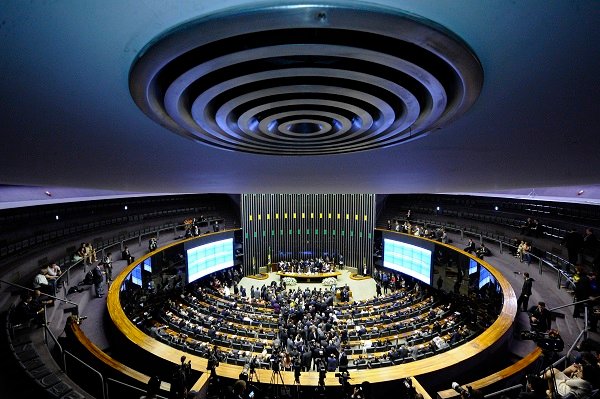Congress overturned President Lula’s (PT) veto on the project that imposes restrictions on the temporary release of prisoners, approved by parliamentarians. Lula’s decision to block the central point of the proposal caused dissatisfaction among party leaders. Before that, the government was also defeated when trying to overturn Jair Bolsonaro’s veto which makes it difficult to punish the spread of fake news.
This Content Is Only For Subscribers
To unlock this content, subscribe to INTERLIRA Reports.
Project Linked to Bolsonaro
The approval of the project featured characters linked to former president Jair Bolsonaro. In the Senate, the text was reported by Flávio Bolsonaro (PL-RJ), eldest son of the former president, and in the Chamber by Guilherme Derrite (PL-SP), who is São Paulo’s State Secretary of Public Security. Derrite is an assistant to Governor Tarcísio de Freitas (Republicans), Bolsonaro’s former minister.
Wave to the Left
By vetoing, Lula makes a nod to the left-wing base, historically opposed to tougher penalties, and a gesture of support for Justice Minister Ricardo Lewandowski.
Process at the STF
With the confirmation by Congress of restrictions on the temporary release of prisoners in the semi-open regime, the government is now counting on the judicialization of the issue to reverse the result. There is an expectation that the Federal Supreme Court (STF) will be called. To this end, discussions are underway at the Brazilian Bar Association (OAB), which has already clearly positioned itself in favor of maintaining the vetoes, and at the Federal Public Defender’s Office (DPU).
Fake News
Congress also decided to maintain vetoes made by former president Jair Bolsonaro on sections of the new National Security Law (LSN), including one that deals with the proliferation of fake news. The government tried to reach an agreement to overturn the former president’s decision but did not have a majority.
In September 2021, Bolsonaro vetoed the update to the National Security Law (LSN), which established new crimes against democratic institutions. Published at the end of the military dictatorship, in 1983, LSN was criticized for its use to investigate Bolsonaro’s opponents. Among the vetoes is the criminalization of electoral fake news.
Civil Police
Parliamentarians also decided to maintain President Lula’s veto on a provision in the National Organic Law of the Civil Police that provided for the full retirement of professionals in the area.
Analysis:
The recent overturn of Lula’s veto on the project restricting the temporary release of prisoners highlights the continued strength of Bolsonaro’s influence in Congress, with figures such as Flávio Bolsonaro and Guilherme Derrite playing key roles. The decision represents a significant defeat for the government, highlighting the tensions between the demands of its left-wing base and pressure from the Legislature.
Furthermore, the maintenance of Bolsonaro’s vetoes on the new National Security Law reflects the challenges faced by the government in obtaining a majority on sensitive issues, such as the regulation of disinformation and fiscal control. These decisions highlight the complexity of governance for Lula, who needs to balance the demands of his base with the need for political articulation in a polarized scenario.




